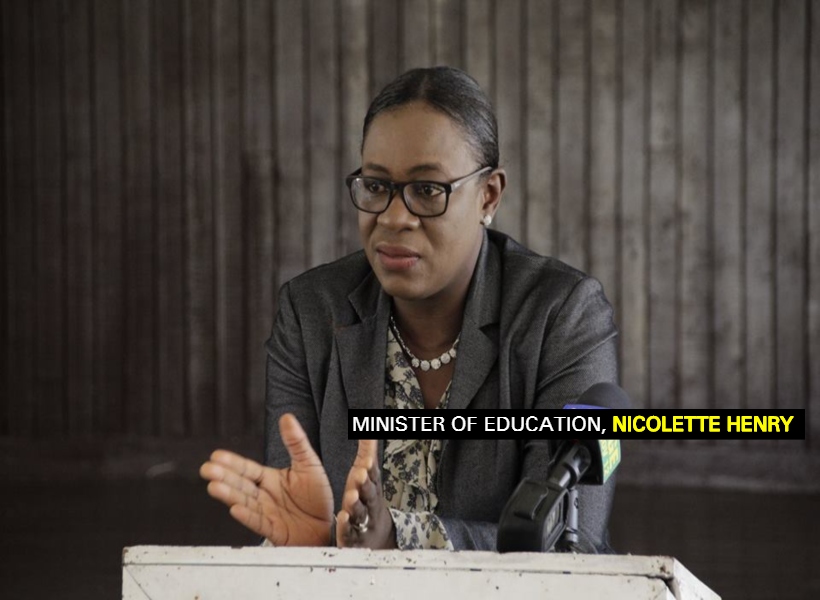Sending a message of disregard for strike action being demonstrated by teachers in a desperate call for pay increase, Minister of Education, Nicolette Henry is calling on parents to still send their children to school when it reopens.
School is set to re-open in seven days.
Today, Henry visited Regions five and six and “assured parents, teachers and school administrators that school will re-open as usual come September 3.”
This is according to a missive sent out by the Ministry.
The Ministry indicated that Henry led a team that included Chief Education Officer (CEO) Marcel Hutson, Assistant Chief Education Officer (Administration) Ingrid Trotman and other Senior Education officials to update citizens about the plan that will be activated by the Ministry of Education (MoE) in light of the Guyana Teachers Union (GTU) strike action.
Addressing the gatherings at Berbice High School in Region six and Latchmansingh Primary School in Region five, the Education Minister noted that school will open as expected. Minister
The Ministry said that Henry told those in attendance that she “understands the value of teachers and appreciates the great work they undertake on a daily basis.”
Further, the Education Minister noted that of the eight proposals proffered by the GTU for the Teachers Multi-Year Agreement for 2016-2020 there has been a full or partial agreement in all the areas except for the ‘heaving lifting’ issues where the MoE offered $700M for salary increases for 2018 and $200M for debunching for the same year.
That offer was rejected by the teachers union.
“We look at them (GTU proposed increase) with sincerity and we could not meet those financial demands. More thought needed to put into the proposal”. As a government we have to look at salary increases in its entirety, teachers are a part of the wider public service family who is entitled to increases as well”, said Henry.
In reference to the conciliation talks slated for August 28th between the MoE and the GTU, Minister Henry was optimistic that the meeting will bear fruit since it is her wish for a speedy resolution to the matter. “We will continue to look out for our teachers and children, I cannot play around with people’s education, get your children out to school” she advised.
Minister Henry said she wanted to make clear that she is not embarking on these countrywide engagements to disagree or proffer a position on the way the GTU has dealt with this issue, rather as Minister of Education it is her duty to ensure that the nation’s children are educated so that as a country we can win the war on illiteracy, poverty and ignorance.
In his remarks to the attendees CEO, Marcel Hutson opined that all embroiled in the matter at hand should ensure that the children are not ‘short changed’ even within our disagreement.
Further, Hutson said it is important that the system continues to move forward in the interest of the children. Additionally, the CEO believes that anyone who hampers the progress of children should revisit the way they do things; he said that sometimes we have to put the children above ourselves.
A former teacher himself, Hutson said that resolving any issue takes time and he was confident that the Teacher Multi-Year agreement 2016-2020 will be resolved to the satisfaction of both parties.
With regards to what measures will be put in place should teachers stay away from school next Monday, Hutson said that the service of some 300 teachers from the Cyril Potter College of Education (CPCE) will be utilized. In addition to that, there are monitors across the regions who will ‘step-up to the plate’ to assist in the interim.
In conjunction with the aforementioned, the services of retired teachers and parents will also be used. It is at this juncture that the CEO urged teachers, who have intentions to strike when the new academic year commences next Monday, to re-visit their position.
The GTU proposed an across-the-board increase in salary of forty per cent (40%) for 2016, forty-five per cent (45) in (2017), fifty per cent (50%) in 2018, fifty per cent (50%) in 2019 and fifty per cent (50%) in 2020.













